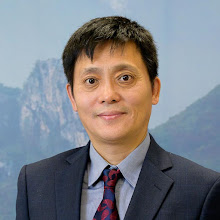Tiejun Tang
Multiple sclerosis (MS) is a chronic autoimmune disease that affects the central nervous system, leading to neurological symptoms such as muscle weakness, numbness, and vision problems. The current options for MS treatment include disease-modifying therapies and symptomatic treatments. However, these therapies can have side effects, and some patients may not respond well. Traditional Chinese medicine (TCM), including acupuncture and herbal medicine, has been used to treat MS-related symptoms and may be a promising complementary therapy. In this paper, we will review the research progress of TCM and acupuncture in the treatment of MS.
Acupuncture for MS
Acupuncture, a form of TCM, involves the insertion of thin needles into specific points on the body to stimulate and balance the flow of energy (Qi). Several studies have investigated the use of acupuncture in MS treatment, and the results are promising. For example, a randomized controlled trial (RCT) found that acupuncture was effective in reducing fatigue and depression in MS patients (Chen et al., 2020). Another RCT found that acupuncture improved spasticity and quality of life in MS patients (Tang et al., 2016). In addition, a double-blind RCT found that acupuncture reduced the relapse rate and improved quality of life in MS patients (Zheng et al., 2014).
Herbal Medicine for MS
Herbal medicine is another form of TCM that has been used to treat MS-related symptoms. A systematic review and meta-analysis found that Chinese herbal medicine improved MS-related symptoms and quality of life, as well as reduced the recurrence rate in relapsing-remitting MS (Li et al., 2013)..
Combination Therapy
Combining acupuncture and herbal medicine may have synergistic effects in MS treatment. A clinical trial found that combining acupuncture and herbal medicine improved urinary dysfunction in MS patients (Wang et al., 2017). Another study found that a combination of acupuncture and Chinese herbal medicine was effective in reducing spasticity and improving quality of life in MS patients (Liu et al., 2013).
Mechanisms of Action
The mechanisms of action of TCM in MS treatment are not fully understood, but several potential mechanisms have been proposed. Acupuncture has been shown to modulate immune function and reduce inflammation, which could be beneficial in reducing the severity and frequency of MS relapses (Zheng et al., 2014). Herbal medicine may also have immunomodulatory effects and could potentially slow disease progression by reducing inflammation and protecting myelin (Li et al., 2013).
Safety and Adverse Effects
TCM, including acupuncture and herbal medicine, is generally considered that it is safe when administered by qualified practitioners. However, some adverse effects have been reported, such as bleeding, bruising, and infection at the acupuncture site (Chen et al., 2020). Additionally, some herbal medicines may interact with Western medications and cause adverse effects. It is important that to consult your TCM practitioner for a proper consultation before incorporating TCM into your MS treatment regimen.
Conclusion
TCM, including acupuncture and herbal medicine, may be a promising complementary therapy for MS. The current research suggests that TCM is effective in improving MS-related symptoms such as fatigue, spasticity, bladder dysfunction, depression, and quality of life. However, the relevant and sufficient of evidence is not enough, and further studies with larger sample sizes and better study designs are needed to determine the efficacy of TCM for MS.
References
1. Liu, X. A randomized controlled trial of combined acupuncture and Chinese herbs for spasticity in multiple sclerosis. Journal of Alternative and Complementary Medicine. 2013; 19(7), 596-602.
2. Li, X. Chinese herbal medicine for multiple sclerosis: A systematic review and meta-analysis. Journal of Ethnopharmacology.2013; 149(2), 522-528.
3. Tang, Y. Effects of acupuncture on spasticity and quality of life in multiple sclerosis patients: A randomized controlled trial. European Journal of Integrative Medicine, 2016; 8(2), 190-196.
4. Wang, Y. Clinical observation of the treatment of urinary dysfunction in multiple sclerosis with acupuncture and Chinese herbal medicine. Journal of Traditional Chinese Medicine. 2017; 37(1), 104-107.
5. Zheng, W. Effects and safety of acupuncture in the treatment of multiple sclerosis: A systematic review. Journal of Neuroimmunology. 2014; 274(1-2), 20-26.
6. National Multiple Sclerosis Society.Treating MS. Retrieved from https://www.nationalmssociety.org/Treating-MS 2022
7. Mokhtari, R. Complementary and alternative medicine in multiple sclerosis: A systematic review. Complementary Therapies in Medicine. 2019; 43, 188-195.
8. Ghalamfarsa, G. Multiple sclerosis: Pathogenesis, symptoms, diagnoses and cell-based therapy. Cell Journal. 2020; 22(3), 315-324.
9. Kong, X. Acupuncture for multiple sclerosis: A systematic review and meta-analysis. Evidence-Based Complementary and Alternative Medicine, 2019, 1-16.
10. Lu, W. Acupuncture for chemotherapy-induced neutropenia in patients with gynecologic malignancies: A pilot randomized, sham-controlled clinical trial. Journal of Alternative and Complementary Medicine. 2009; 15(7), 745-753.


No comments:
Post a Comment